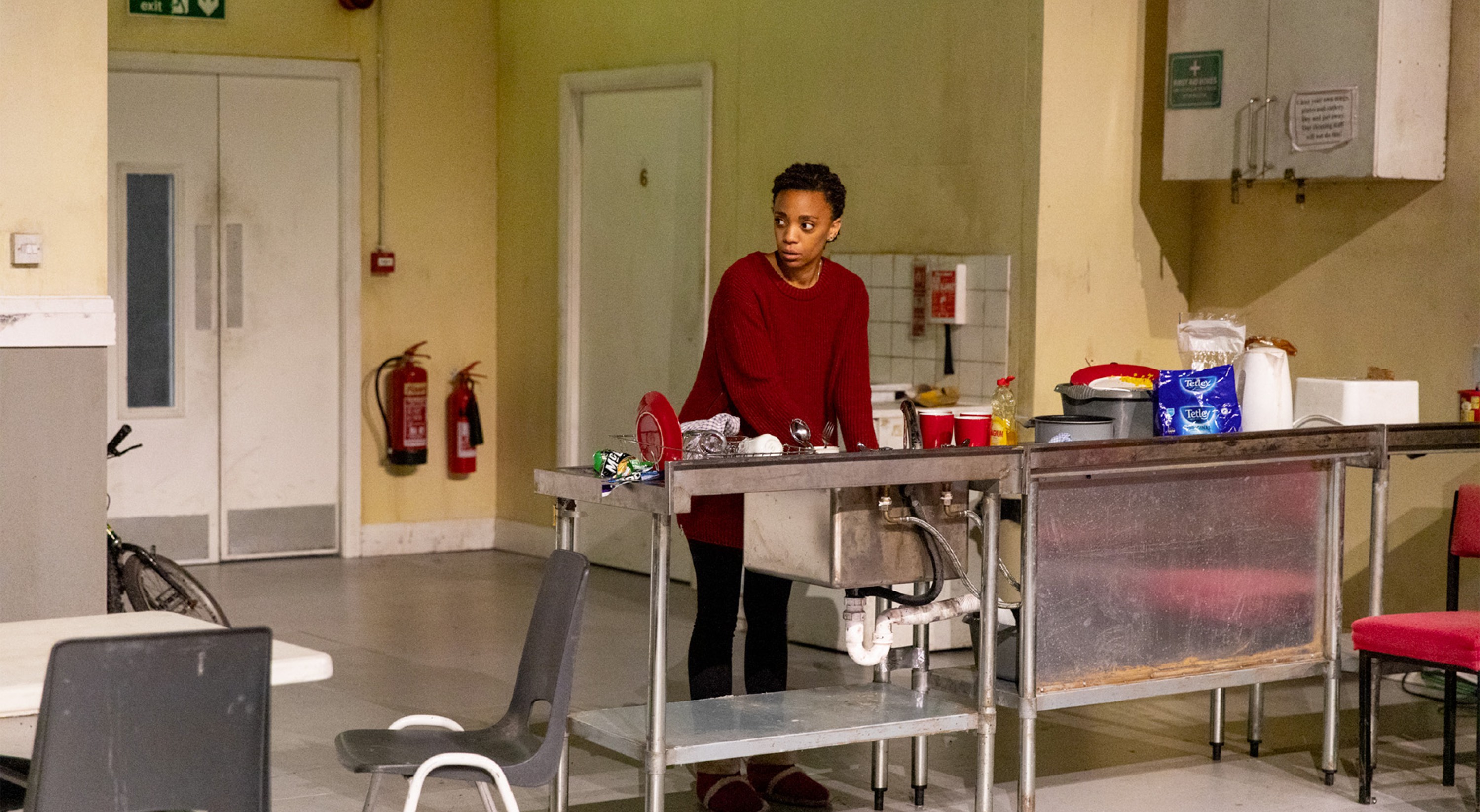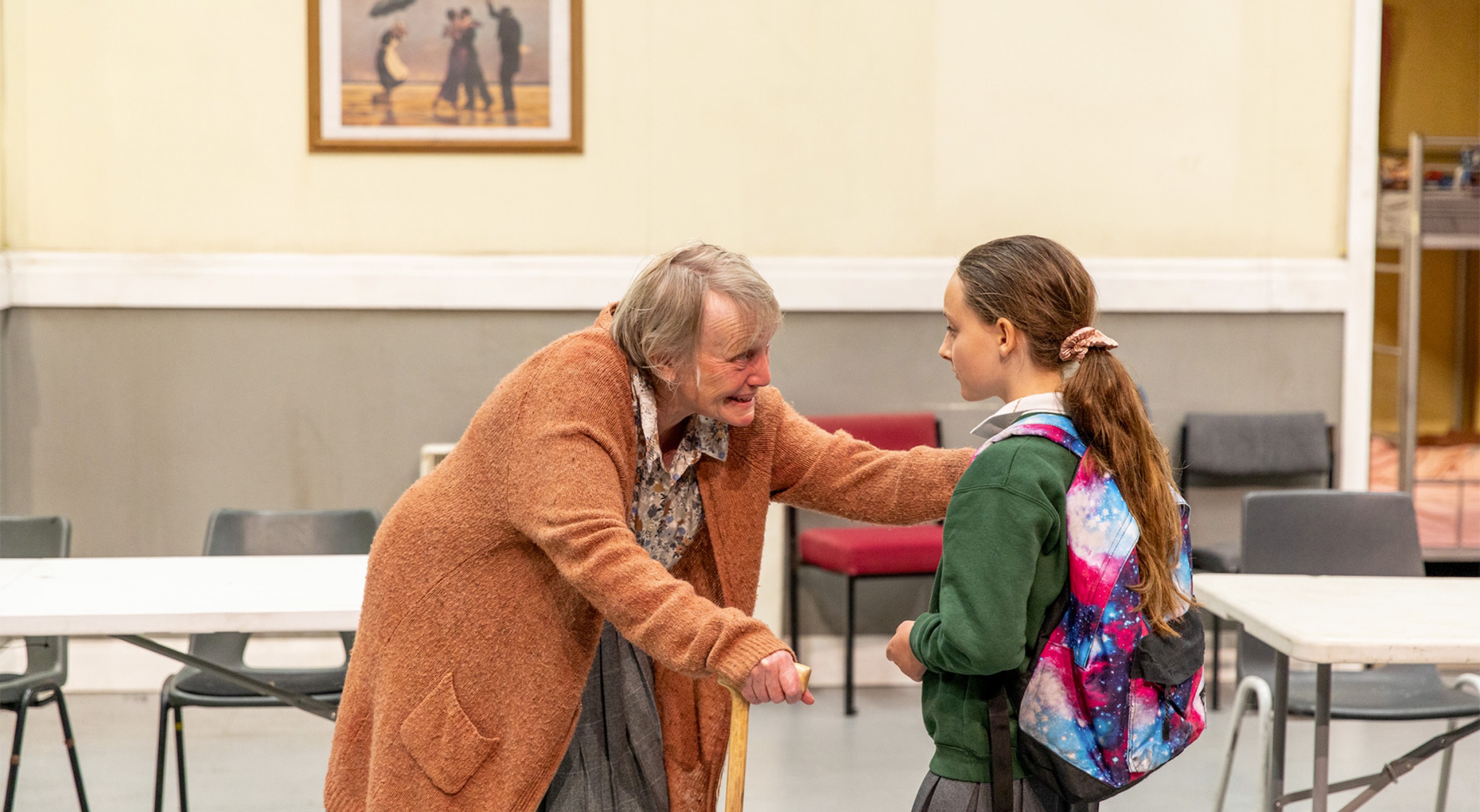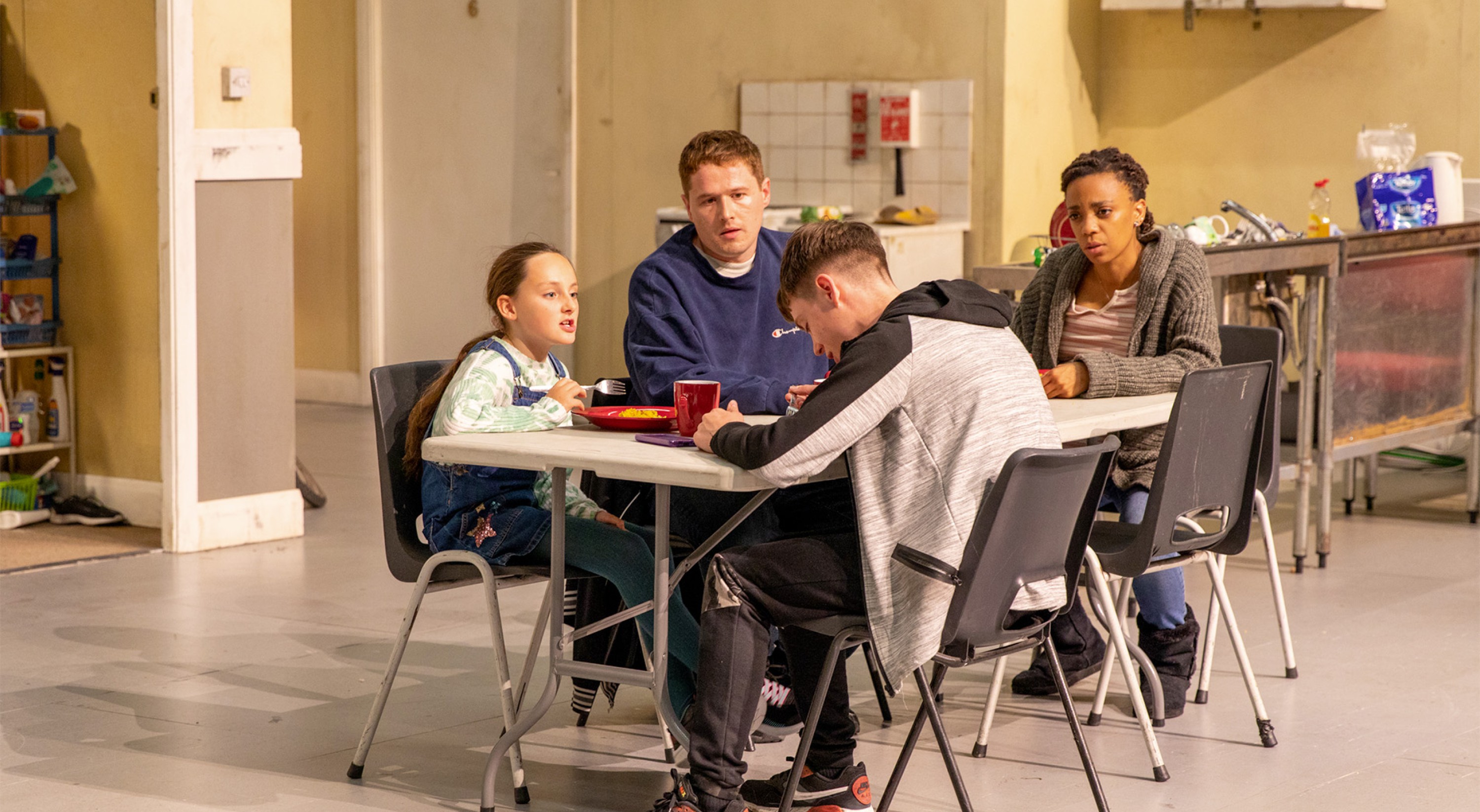Alexander Zeldin
LOVE
octoberoct 15 – 22
Text and direction, Alexander Zeldin
With Amelda Brown, Naby Dakhli, Amelia Finnegan, Oliver Finnegan, Sandy Grierson, Joel MacCormack, Hind Swareldahab, Temi Wilkey, Grace Willoughby
Set design and costumes, Natasha Jenkins
Lights, Marc Williams
Sound, Josh Anio Grigg
Movements work, Marcin Rudy
Staging assistant, Elin Schofield
Costumes assistant, Caroline McCall
Re-creation of the setting, Ateliers Berthier – Odéon-Théâtre de l’Europe (Paris)
The original text was published by Bloomsbury Methuen Drama in 2016.
The show was created at the National Theatre, Londres, in December 2016, then remade at the Birmingham Repertory in January 2017.
Production A Zeldin Company
Co-production Odéon-Théâtre de l’Europe
Original production National Theatre of Great Britain
Original co-production Birmingham Repertory Theatre
Co-directed by La Commune CDN d’Aubervilliers ; Odéon-Théâtre de l’Europe (Paris) ; Festival d’Automne à Paris
With support from the city of Aubervilliers
Alexander Zeldin’s internationally-acclaimed piece follows an array of characters who find themselves at the mercy of the UK’s social care system. Love is the play’s common denominator, a last-ditch form of resistance in the long list of humiliations and spiral of decay.
A few days before Christmas, in a sheltered accommodation centre, eight characters waiting to be rehoused find themselves forced to cohabit. The different characters - a man and his elderly mother, a family expecting a baby, and two migrants in transit - become variations on the theme of the family and the links that we nourish with those dear to us. In the shared living space, arguments break out over space on the table, or access to the bathroom. Each of them tries to find their place, and negotiate a bit of breathing space, freedom or tenderness from the others. In a highly effective way, LOVE depicts the downward spiral of economic precariousness, and all the instability that goes with it. It shows, in a non-demonstrative way, what is at stake in these different trajectories, the deficiencies of the social care system and the negative effects of austerity politics. The minimalist dialogues, daily rituals for survival and silences, make LOVE a powerful piece of drama, from which none of the characters emerges unscathed.
In the same place



